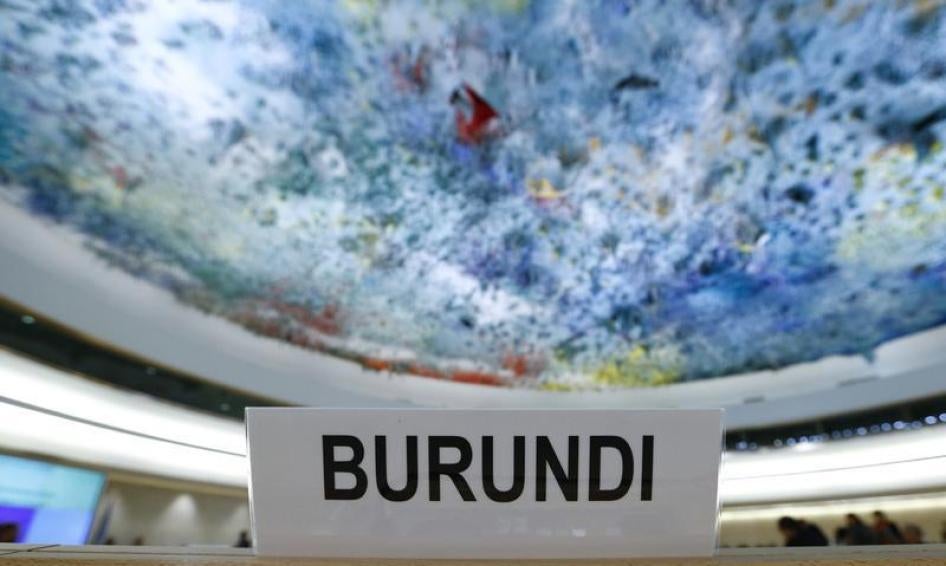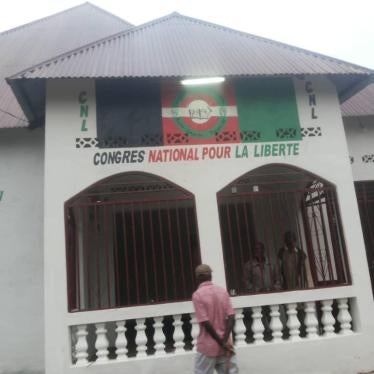Last week, several Security Council members signaled continued concern for the situation in Burundi, highlighting rising political repression linked to the upcoming 2020 elections, restrictions on independent media, and stalled regional mediation efforts. Amid a growing humanitarian crisis, nearly 1.8 million Burundians are at risk of food insecurity.
But other Council members such as Russia, China, and Equatorial Guinea, argued Burundi shouldn’t even be on the Council’s agenda, claiming calm and stability have been restored, and pointing to election preparations underway and the ongoing repatriation of refugees. The Burundian government often characterizes Council scrutiny as “politically motivated.” And despite much evidence of disturbing trends, some countries continue to echo the government’s line that all is well in Burundi.
In the four years since Burundi’s crisis broke out, the government has stopped at nothing to eliminate space for independent criticism and dissent. Recent investigations by Human Rights Watch, exiled rights groups, and the UN Commission of Inquiry on Burundi, paint a worrying picture of abuse and repression.
Just one day after the Council’s June 14 meeting, an office of Burundi’s opposition party National Congress for Freedom (CNL) in Bujumbura Rural province was burned down. A CNL representative said that police arrested 15 members of the party just before the building was burned.
On Monday, a government order was published, suspending PARCEM, one of the last remaining independent rights organizations in Burundi. The government accused PARCEM of tarnishing the image of the country and its leaders. The organization had been spearheading the “Ukuri Ku Biduhanze” campaign (“truth on the challenges the country faces”) and raising awareness of critical issues ranging from malaria to food insecurity.
Such intolerance has also been directed at international rights observers. After closing down the UN human rights office in Burundi and blocking access to the UN Commission of Inquiry, the government is now reportedly threatening to cut ties with the Secretary General’s Special Envoy.
Burundian authorities are hoping if the world cannot see their abuses, it will not discuss them. Members of the Security Council should step up efforts to curtail these abuses, including by requesting a briefing by the UN Commission of Inquiry. Burundi’s crisis risks further escalation ahead of the 2020 elections, and now is not the time to look the other way.









